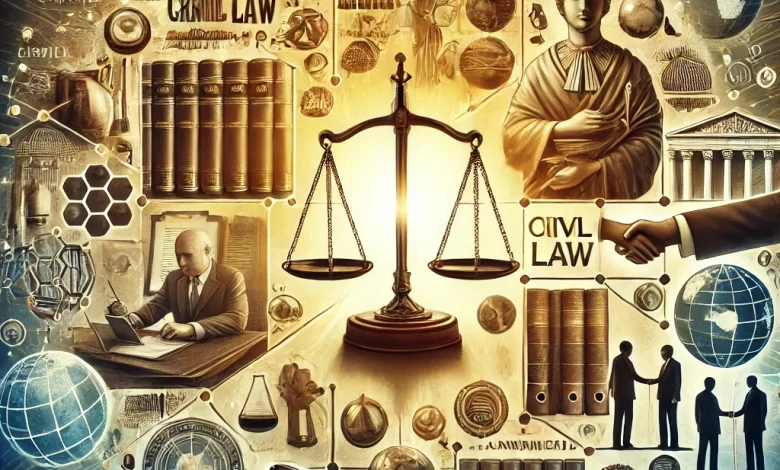
Sistemde Yol Bulmak: Yabancıların Türk Ceza Hukuku Kapsamındaki Hakları ve Sorumlulukları
Temel Sorumluluk: Mülkilik İlkesi
Haklar Kalkanınız: Bir Suçla İtham Edilirseniz Ne Olur?
|
|
|
|
|
|
|
|
|
|
|
|
|
|
|
|
|
|
|
|
|
|
|
|
Ceza Muhakemesi Aşamalarını Anlamak
-
Soruşturma: Bu aşama, savcının potansiyel bir suçtan haberdar olmasıyla başlar. Polisin delil toplamasını, ifade almasını ve arama yapmasını içerir. Gözaltına alınmanız (gözaltı) veya tutuklanmanız (tutuklama) bu aşamada gerçekleşir. Bir Alanya Avukatı'nın buradaki rolü, sorgu sırasında haklarınızı korumak ve hukuka aykırı delillere itiraz etmektir. -
Kovuşturma: Savcı yeterli delil bulursa, mahkemeye bir iddianame sunar ve dava aşaması başlar. -
Yargılama: Bu, mahkemenin savcıyı, sanığı (sizi), avukatınızı ve tanıkları dinlediği duruşmalar dizisidir. Avukatınız savunmanızı sunacak, tanıkları çapraz sorguya çekecek ve hukuki argümanlarda bulunacaktır. -
İstinaf / Temyiz: Mahkum edilirseniz, kararı bir üst mahkemeye taşıma hakkınız vardır.
Deneyimli Bir Ceza Avukatı Neden Pazarlık Konusu Değildir?
-
Kritik ilk saatlerde haklarınızın ihlal edilmemesini sağlayarak sizi polis merkezinde korur. -
Dava dosyasını ve delilleri analiz ettikten sonra bir hukuk stratejisi geliştirir. -
Sizin adınıza savcı ve mahkeme ile etkili bir şekilde iletişim kurar. -
Usul hatalarına ve hukuka aykırı olarak elde edilen delillere itiraz eder. -
Mahkemede özgürlüğünüz ve mümkün olan en iyi sonuç için savaşır.
Benzer İçeriklerimize Göz Atın:
- 2024 Yılında Gayrimenkul Yatırımı Yoluyla Türk Vatandaşlığı Almak İçin Kapsamlı Rehber
- Türkiye'de Yabancılar İçin Mülk Edinme Rehberi: Adım Adım Hukuki Süreç
- Türkiye'de Oturma İzni (İkamet Tezkeresi) Nasıl Alınır? Yabancılar için Kapsamlı Rehber 2024
- Taşınmaz Yatırımı Yoluyla Türk Vatandaşlığı Kazanımına İlişkin Kapsamlı Rehber
- Türkiye'de Yabancılar İçin Mülk Edinme Kapsamlı Rehberi
- Türkiye'de Yabancılar İçin Gayrimenkul Alımı: Adım Adım Kapsamlı Rehber
- Yatırım Yoluyla Türk Vatandaşlığı: Kapsamlı Rehberiniz
- Türkiye'de Tüketici Hakları: Ayıplı Mallarla Karşılaşan Yabancılar İçin Bir Rehber
- Türkiye'de Yabancılar İçin Alacakların Tahsili: İcra Takibi Süreci
- Türkiye'de Vergi Hukuku: Yabancılar İçin Vergi Yükümlülükleri Rehberi
- Türkiye'de Tıbbi Uygulama Hataları (Malpraktis) ve Yabancı Hasta Hakları
- Türkiye'de Yabancılar İçin Vasiyetname Hazırlama: "Saklı Pay" Kuralını Anlamak
- Türkiye'de İsim Denklik Belgesi: Yabancılar ve Çifte Vatandaşlar İçin Bir Rehber
- Türkiye'de Yabancılar İçin Alacakların Tahsili: İcra Takibi Süreci
- Türkiye'de Yabancılara Karşı Açılan Tahliye Davaları: Kiracı Hakları ve Yasal Süreçler
- Yabancı Mahkeme Kararlarının Türkiye’de Geçerli Hale Getirilmesi: Tanıma ve Tenfiz Süreci
- Türkiye’de Yabancıların Karıştığı Trafik Kazaları ve Hukuki Süreç
- Kazanılmış Türk Vatandaşlığının Kaybedilmesi: Hukuki Gerekçeler
- Türkiye'de İşten Çıkarılan İşçilerin Tazminat Hakları
- Türkiye’de Yabancıların Tahkim Yoluyla Uyuşmazlık Çözümü
- Yabancılar Açısından Türkiye’de Ticaret Hukuku ve Şirketler Hukuku
- Türkiye’de Yabancıların Çalışma İzni Reddi ve İtiraz Süreci
- Yabancılar İçin Türkiye’de İdari Para Cezalarına İtiraz Yolları
- Türkiye’de Yabancıların Vekaletname Çıkarması: Hukuki Gereklilikler
- Yabancılar İçin Türkiye’de Boşanma ve Nafaka Davaları
- Türkiye’de Yabancıların Ceza Hukuku Açısından Hakları ve Sorumlulukları
- Yabancıların Türkiye’de Adil Yargılanma Hakkı
- Türkiye’de Kat Mülkiyeti Kanunu ve Yabancılar İçin Önemi
- Yabancıların Türkiye’de Arsa ve Tarla Satın Alırken Karşılaştığı Hukuki Kısıtlamalar
- Miras Hukuku: Türkiye’de Yabancılar İçin Veraset ve İntikal İşlemleri

 Türkçe
Türkçe  İngilizce
İngilizce  Almanca
Almanca Rusça
Rusça
